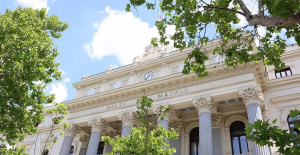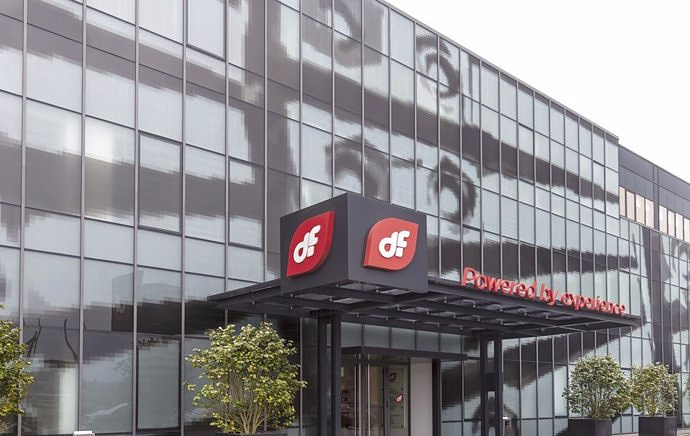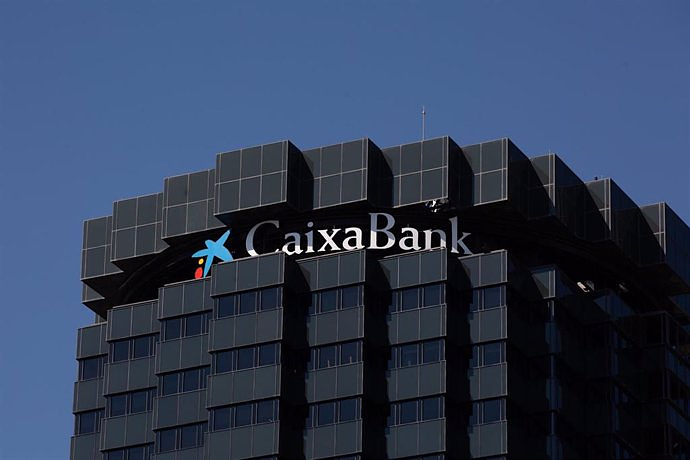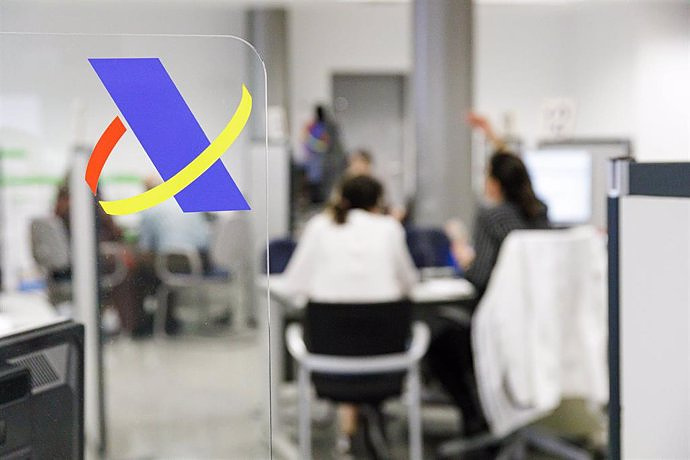MADRID, 14 Mar. (EUROPA PRESS) -
The price of the US banking sector, which had plummeted in recent sessions and led to the intervention this weekend by Silicon Valley Bank (SVB) and Signature Bank, registered strong general increases after the opening of Wall Street, particularly in the case First Republic Bank, one of the hardest-hit entities on Monday.
In this way, the shares of the San Francisco-based bank rose 63.3% after the opening of Wall Street, although with the passing of the minutes they moderated their climb to 48%.
Likewise, other small entities that were punished on Monday for fear of contagion saw their share prices rise sharply today, including PacWest (47.90%), Zions Bancorp (15.18%), KeyCorp (18.45%) and Western Alliance (43.50%).
On their side, the main banks in the United States also registered increases this Tuesday, although they showed less volatility than smaller entities.
In this way, Wells Fargo advanced 5.29%, Citigroup 5.30% and Bank of America 2.49%, while Goldman Sachs recorded a rise of more than 2%, Morgan Stanley 3.57 % and JP Morgan of 1.44%.
The credit rating agency Moody's has worsened its outlook on the US banking system, down to "negative" from "stable", to reflect the rapid deterioration in the operating environment after the collapse of entities such as Silicon Valley Bank (SVB) , Silvergate Bank and Signature Bank (SNY).
The risk rating agency considers that, although the Department of the Treasury, the Federal Reserve and the FDIC have offered support to the clients of the entities, the rapid and substantial decrease in the confidence of bank depositors and investors that this action precipitated clearly highlights the risks in US banks' asset and liability management, exacerbated by rapidly rising interest rates.
Thus, while the Fed's new Bank Term Funding Program (BTFP) is constructive, Moody's expects pressures to persist and be exacerbated by ongoing monetary policy tightening, as well as rising deposit costs, which will reduce the profits of banks, particularly those with a higher proportion of fixed-rate assets.
"Our base case is that the Fed's monetary tightening continues, which could deepen the challenges for some banks," the agency has indicated, for which those banks with lower latent losses, greater capitalization, diverse sectoral exposures and deposit bases granular policyholders will be more protected or will benefit from a "flight to quality".
Furthermore, Moody's anticipates that the US will enter a mild recession in the latter part of 2023, and that real GDP growth will remain below trend in 2024, with a gradual increase in the unemployment rate, which will allow for inflation to subside, allowing the Fed to move to a neutral policy stance in 2025.
Likewise, the Moody's agency has placed all the long-term ratings of First Republic Bank and five other small US entities (Comerica, Zions, UMB Financial, Intrust and Western Alliance) on review for downside.
This downgrade revision reflects the extremely volatile funding conditions being experienced by some US banks exposed to the risk of uninsured deposit outflows.
In the case of First Republic, the risk rating agency indicates that if it were to face deposit outflows greater than anticipated and liquidity support were insufficient, the bank could need to sell assets, thus crystallizing latent losses in its values, which could materially weigh on the bank's profitability and capital.

 Exploring Cardano: Inner Workings and Advantages of this Cryptocurrency
Exploring Cardano: Inner Workings and Advantages of this Cryptocurrency Seville.- Economy.- Innova.- STSA inaugurates its new painting and sealing hangar in San Pablo, for 18 million
Seville.- Economy.- Innova.- STSA inaugurates its new painting and sealing hangar in San Pablo, for 18 million Innova.- More than 300 volunteers join the Andalucía Compromiso Digital network in one month to facilitate access to ICT
Innova.- More than 300 volunteers join the Andalucía Compromiso Digital network in one month to facilitate access to ICT Innova.-AMP.- Ayesa acquires 51% of Sadiel, which will create new technological engineering products and expand markets
Innova.-AMP.- Ayesa acquires 51% of Sadiel, which will create new technological engineering products and expand markets The AP calls the US veto to recognize Palestine as a full member of the UN "immoral"
The AP calls the US veto to recognize Palestine as a full member of the UN "immoral" The IAEA affirms that there is "no damage" to Iran's nuclear facilities after the attack attributed to Israel
The IAEA affirms that there is "no damage" to Iran's nuclear facilities after the attack attributed to Israel The Ibex 35 falls 0.8% at the opening and loses 10,700 points due to tensions in the Middle East
The Ibex 35 falls 0.8% at the opening and loses 10,700 points due to tensions in the Middle East Brent oil threatens to exceed $90 per barrel due to tensions in the Middle East
Brent oil threatens to exceed $90 per barrel due to tensions in the Middle East How Blockchain in being used to shape the future
How Blockchain in being used to shape the future Not just BTC and ETH: Here Are Some More Interesting Coins Worth Focusing on
Not just BTC and ETH: Here Are Some More Interesting Coins Worth Focusing on LIFE SPOT manages to develop new green treatments that eliminate groundwater contamination
LIFE SPOT manages to develop new green treatments that eliminate groundwater contamination València Game City is born to promote the video game industry and position this city as a leader in the sector
València Game City is born to promote the video game industry and position this city as a leader in the sector A team of UPV and iPRONICS manufactures the first programmable and multifunctional photonic chip on the market
A team of UPV and iPRONICS manufactures the first programmable and multifunctional photonic chip on the market 'Science and Reeds' returns with talks about "the mystery of the lost socks" or the vinegar fly
'Science and Reeds' returns with talks about "the mystery of the lost socks" or the vinegar fly A million people demonstrate in France against Macron's pension reform
A million people demonstrate in France against Macron's pension reform Russia launches several missiles against "critical infrastructure" in the city of Zaporizhia
Russia launches several missiles against "critical infrastructure" in the city of Zaporizhia A "procession" remembers the dead of the Calabria shipwreck as bodies continue to wash up on the shore
A "procession" remembers the dead of the Calabria shipwreck as bodies continue to wash up on the shore Prison sentences handed down for three prominent Hong Kong pro-democracy activists
Prison sentences handed down for three prominent Hong Kong pro-democracy activists ETH continues to leave trading platforms, Ethereum balance on exchanges lowest in 3 years
ETH continues to leave trading platforms, Ethereum balance on exchanges lowest in 3 years Investors invest $450 million in Consensys, Ethereum incubator now valued at $7 billion
Investors invest $450 million in Consensys, Ethereum incubator now valued at $7 billion Alchemy Integrates Ethereum L2 Product Starknet to Enhance Web3 Scalability at a Price 100x Lower Than L1 Fees
Alchemy Integrates Ethereum L2 Product Starknet to Enhance Web3 Scalability at a Price 100x Lower Than L1 Fees Mining Report: Bitcoin's Electricity Consumption Declines by 25% in Q1 2022
Mining Report: Bitcoin's Electricity Consumption Declines by 25% in Q1 2022 Oil-to-Bitcoin Mining Firm Crusoe Energy Systems Raised $505 Million
Oil-to-Bitcoin Mining Firm Crusoe Energy Systems Raised $505 Million Microbt reveals the latest Bitcoin mining rigs -- Machines produce up to 126 TH/s with custom 5nm chip design
Microbt reveals the latest Bitcoin mining rigs -- Machines produce up to 126 TH/s with custom 5nm chip design Bitcoin's Mining Difficulty Hits a Lifetime High, With More Than 90% of BTC Supply Issued
Bitcoin's Mining Difficulty Hits a Lifetime High, With More Than 90% of BTC Supply Issued The Biggest Movers are Near, EOS, and RUNE during Friday's Selloff
The Biggest Movers are Near, EOS, and RUNE during Friday's Selloff Global Markets Spooked by a Hawkish Fed and Covid, Stocks and Crypto Gain After Musk Buys Twitter
Global Markets Spooked by a Hawkish Fed and Covid, Stocks and Crypto Gain After Musk Buys Twitter Bitso to offset carbon emissions from the Trading Platform's ERC20, ETH, and BTC Transactions
Bitso to offset carbon emissions from the Trading Platform's ERC20, ETH, and BTC Transactions Draftkings Announces 2022 College Hoops NFT Selection for March Madness
Draftkings Announces 2022 College Hoops NFT Selection for March Madness






















